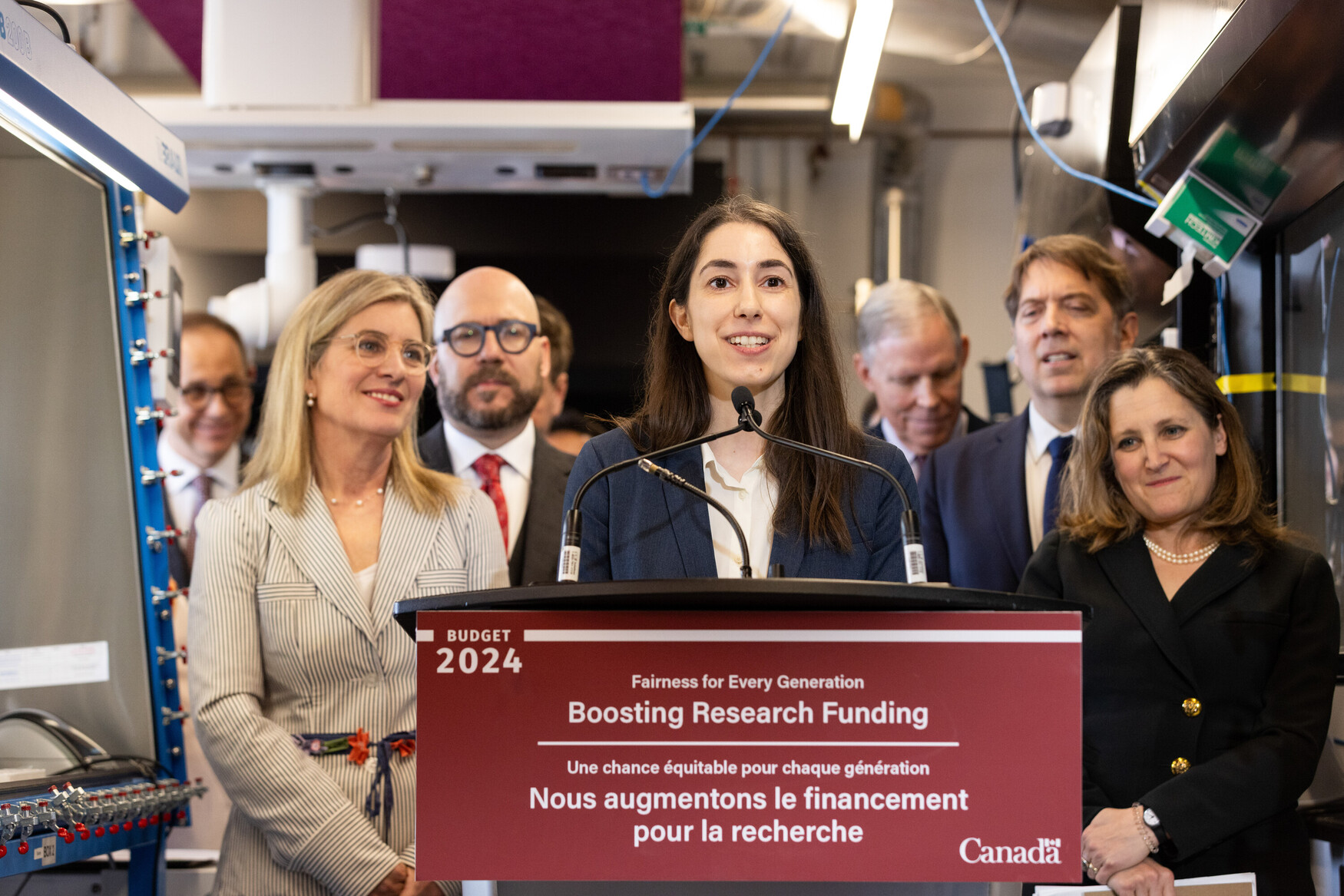Mobile Menu
- Education
- Research
-
Students
- High School Outreach
- Undergraduate & Beyond: Community of Support
- Current Students
- Faculty & Staff
- Alumni
- News & Events
- Giving
- About

A new University of Toronto alumna has been recognized for her role in one of 2024’s biggest science stories.
Kaitlin Kharas is one of 10 on the journal Nature’s annual list of people who played an important part in shaping the year’s most significant moments in science.
Kharas, who recently completed her PhD at Temerty Medicine’s department of laboratory medicine and pathobiology, was a student leader in the movement to push Canada’s federal government for increased funding of graduate students and postdoctoral fellows. Her efforts, along with those of supporters across the country, led to the biggest boost to graduate and postdoctoral funding in over 20 years.
Since 2003, graduate scholarships and postdoctoral fellowships from Canada’s three national granting agencies have remained static while the cost of living has risen dramatically. To alleviate financial hardship and attract talent, Temerty Medicine announced at the end of 2022 that graduate student stipends across the Faculty would increase to $37,000 for master’s students and $40,000 for PhD students.
“We’ve been lucky at Temerty Medicine that we’ve seen stipends rise, but that is not the case in many institutions across Canada,” says Kharas, who is now working as a consultant at Boston Consulting Group.
In 2022 she became involved with Support Our Science, a grassroots student-led organization that advocates for higher pay for graduate students and postdoctoral fellows. Kharas and the SOS team spearheaded nation-wide walkouts, petitions and email and social media campaigns to raise awareness about the issue. They also met with policymakers at the granting agencies and within government.
Their hard work paid off with the 2024 federal budget, which outlined increases in stipends for master’s and PhD students to $27,000 and $40,000 per year, respectively. Fellowships for postdoctoral scholars will now be set at $70,000. The number of scholarships and fellowships available will also increase over time to around 1,720 more per year after five years.
In line with the benchmarks set by the new budget, U of T announced in November that it will increase funding for PhD and SJD (doctor of juridical science) students across its three campuses to an annual base funding package of $40,000.
“It’s an incredible honour to have Nature recognize graduate student and postdoc advocacy in Canada as a defining story of the year,” says Kharas, who recently stepped down as the executive director of SOS.
“Being part of Support Our Science has been deeply meaningful to me, but this recognition truly belongs to the thousands of advocates across Canada whose passion and dedication have driven significant change.”

